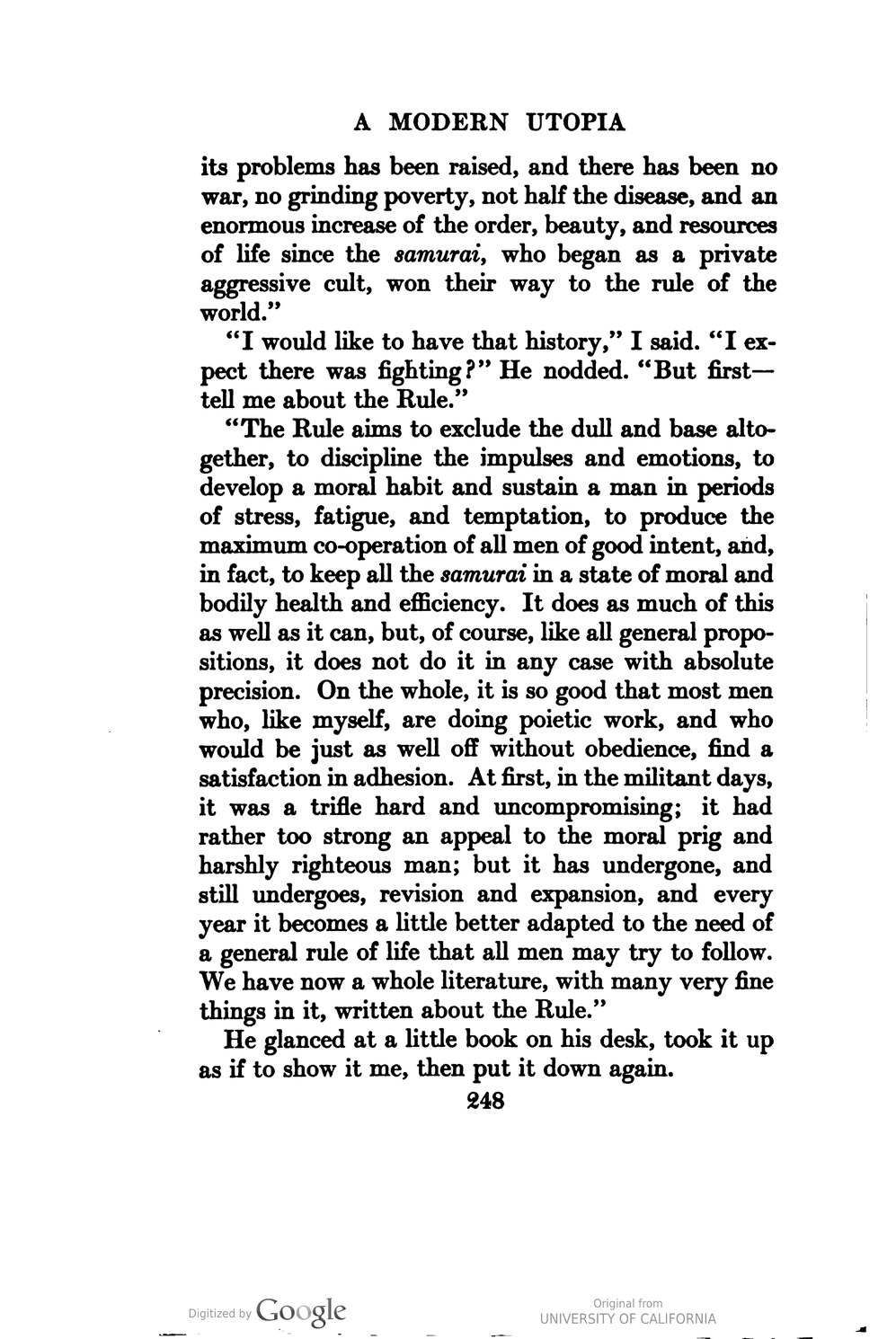A MODERN UTOPIA
its problems has been raised, and there has been no war, no grinding poverty, not half the disease, and an enormous increase of the order, beauty, and resources of life since the samurai, who began as a private aggressive cult, won their way to the rule of the world."
"I would like to have that history," I said. "I expect there was fighting?" He nodded. "But first—tell me about the Rule."
"The Rule aims to exclude the dull and base altogether, to discipline the impulses and emotions, to develop a moral habit and sustain a man in periods of stress, fatigue, and temptation, to produce the maximum co-operation of all men of good intent, and, in fact, to keep all the samurai in a state of moral and bodily health and efficiency. It does as much of this as well as it can, but, of course, like all general propositions, it does not do it in any case with absolute precision. On the whole, it is so good that most men who, like myself, are doing poietic work, and who would be just as well off without obedience, find a satisfaction in adhesion. At first, in the militant days, it was a trifle hard and uncompromising; it had rather too strong an appeal to the moral prig and harshly righteous man; but it has undergone, and still undergoes, revision and expansion, and every year it becomes a little better adapted to the need of a general rule of life that all men may try to follow. We have now a whole literature, with many very fine things in it, written about the Rule."
He glanced at a little book on his desk, took it up as if to show it me, then put it down again.
248
